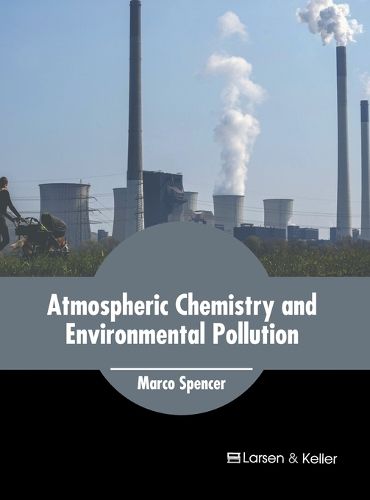Readings Newsletter
Become a Readings Member to make your shopping experience even easier.
Sign in or sign up for free!
You’re not far away from qualifying for FREE standard shipping within Australia
You’ve qualified for FREE standard shipping within Australia
The cart is loading…






Atmospheric chemistry refers to the branch of atmospheric science that studies the chemical processes, which take place in the Earth's atmosphere as well as the composition of planetary atmospheres. It also studies the factors that influence the components of the atmosphere and its related environmental effects such as biogeochemical cycling, climate and air quality. It plays an integral role in the study of chemical processes that occur in the gas and particle phases for predicting their impact on environmental pollution and global climate change. Atmospheric chemistry helps to address multiple issues including ozone depletion, greenhouse gases, acid rain, global warming and photochemical smog. This area of study is also crucial in regulating climate change. For instance, aerosol particles directly impact the climate by radiative forcing, modifying carbon uptake, and (indirectly) modifying clouds. This book aims to shed light on some of the unexplored aspects of atmospheric chemistry and environmental pollution. Scientists and students actively engaged in this field will find it full of crucial and unexplored concepts.
$9.00 standard shipping within Australia
FREE standard shipping within Australia for orders over $100.00
Express & International shipping calculated at checkout
Atmospheric chemistry refers to the branch of atmospheric science that studies the chemical processes, which take place in the Earth's atmosphere as well as the composition of planetary atmospheres. It also studies the factors that influence the components of the atmosphere and its related environmental effects such as biogeochemical cycling, climate and air quality. It plays an integral role in the study of chemical processes that occur in the gas and particle phases for predicting their impact on environmental pollution and global climate change. Atmospheric chemistry helps to address multiple issues including ozone depletion, greenhouse gases, acid rain, global warming and photochemical smog. This area of study is also crucial in regulating climate change. For instance, aerosol particles directly impact the climate by radiative forcing, modifying carbon uptake, and (indirectly) modifying clouds. This book aims to shed light on some of the unexplored aspects of atmospheric chemistry and environmental pollution. Scientists and students actively engaged in this field will find it full of crucial and unexplored concepts.